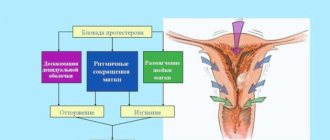Write a review
Reviews: 0
Manufacturers: Gedeon Richter Ltd., PL
Active ingredients
- Levonorgestrel
Disease class
- Monitoring contraceptive use
Clinical and pharmacological group
- Not indicated. See instructions
Pharmacological action
- Contraceptive
Pharmacological group
- Estrogens, gestagens; their homologs and antagonists in combinations
Contraindications
- Diseases of the endocrine system;
- Lipid metabolism disorders;
- Thromboembolism, thrombosis;
- Increased tendency to thrombosis;
- Cerebrovascular diseases;
- Severe organic heart disease;
- Cardiac ischemia;
- Arterial hypertension;
- Decompensated diabetes mellitus;
- Diseases of the liver and gall bladder;
- Hepatitis, including a history;
- Chronic hemolytic anemia;
- Sickle cell anemia;
- Anemia;
- Tetany;
- Malignant tumors;
- Bleeding of unknown etiology;
- Otosclerosis;
- Dubin-Johnson syndrome;
- Skin itching;
- Porphyria;
- History of pregnancy herpes;
- Pregnancy and lactation;
- Hypersensitivity to the components of the drug.
OVIDON Tablets No. 21
General information Pharmaceutical group: Estrogens, gestagens; their homologues and antagonists. Nosological classification (ICD-10): N94.0 Pain in the middle of the menstrual cycle. N94.6 Dysmenorrhea, unspecified. Z30 Monitoring the use of contraceptives.
Pharmacological action: Contraceptive, estrogen-gestagen. It inhibits ovulation, reversibly changes the normal course of the secretory phase of the menstrual cycle, causes temporary atrophic changes in the endometrium and disrupts its ability to implant a fertilized egg.
Indications: Contraception, dysmenorrhea, functional disorders of the menstrual cycle; pain syndrome that develops in the middle of the menstrual cycle.
Contraindications: Hypersensitivity, liver and gall bladder diseases, endocrine system diseases, decompensated diabetes mellitus, lipid metabolism disorders, severe organic heart diseases, arterial hypertension, cerebrovascular diseases, increased tendency to thrombosis, sickle cell anemia, chronic hemolytic anemia, malignant tumors, tetany, pregnancy, lactation.
Side effects: Dyspepsia, mastalgia, changes in body weight, decreased glucose tolerance, changes in libido, vaginal bleeding, mood lability, fatigue, headaches, cramps in the calf muscles, skin rashes.
Interaction: Inducers of microsomal oxidation (rifampicin, barbiturates, phenytoin, etc.), tetracyclines, sulfonamides, pyrazolone derivatives reduce the effect.
Method of administration and dosage: Orally, for the purpose of contraception - in the evening, 1 tablet. per day, starting from 1-5 days of menstruation, for 21 days. After a 7-day break (during which menstrual-like bleeding occurs), the next 21-day course begins. For therapeutic purposes, the dose and treatment regimen are selected individually.
Precautions: Use should be discontinued if pregnancy develops, if thrombosis, thromboembolism or thrombophlebitis occurs, cerebrovascular disorders, myocardial infarction, retinal vascular thrombosis, if visual acuity deteriorates, exophthalmos, diplopia, repeated persistent headaches, if any severe chronic disease develops . Particular attention is required when prescribing to women over 35 years of age.
Special instructions: Most indicated for predominant estrogenic phenotype. The contraceptive effect may be weakened if the interval between taking two tablets exceeds 36 hours.
Shelf life: 5 years Storage conditions: List B. At a temperature of 15-30 °C
Directions for use and dosage
Ovidone is taken orally after meals.
As a contraceptive, 1 tablet is prescribed daily for 21 days, starting from the 5th day of the menstrual cycle. It is recommended to take the drug in the evening, at approximately the same time. This is followed by a 7-day break, during which withdrawal bleeding occurs. On day 8, start taking the drug from a new package.
After an abortion, it is recommended to start using the drug on the day of surgery or the next day.
After childbirth, if the woman is not breastfeeding, you can start taking it after 21 days.
If you miss a pill:
- If less than 36 hours have passed: you need to take the tablet as soon as possible, then take it as usual;
- If more than 36 hours have passed: in the first or second week of the cycle, you should take 2 tablets at once, then take them as usual; in the third week of the cycle - for the next 2 days you should take 2 tablets, then continue taking the drug as usual, but without a 7-day break and additionally use a barrier method of contraception;
- If you miss 2 tablets in a row in the first or second week of the cycle: you should take 2 tablets for the next 2 days, then continue taking the drug as usual, and additionally use a barrier method of contraception.
When prescribing Ovidon for medicinal purposes, the doctor selects the dosage regimen individually in each case.
Rigevidon
Active substance:
Levonorgestrel*, Ethinylestradiol* (Levonorgestrel*, Ethinylestradiol*)
Pharmgroup:
Estrogens, gestagens; their homologs and antagonists in combinations
Average price in pharmacies
| Name | Manufacturer | average price |
| Rigevidon 21+7 n28 tablet p/o | GEDEON RICHTER | 302.00 |
| Rigevidon 21+7 n28x3 tablet p/o | GEDEON RICHTER | 887.00 |
| Rigevidon n21 tablet p/o | GEDEON RICHTER | 258.00 |
Analogs for the active substance:Anteovin Microgynon Miniziston Miniziston 20 fem Ovidon Tri-regol Triquilar |
Side effects
- Change in body weight;
- Breast engorgement, soreness;
- Bloody vaginal discharge;
- Vaginal dryness;
- Changes in libido;
- Dyspepsia (nausea, vomiting, bloating);
- Mood lability;
- Decreased glucose tolerance;
- Cramps in the calf muscles;
- Headache;
- Fatigue;
- Depression;
- Edema;
- Skin reactions: rashes, acne, age spots, dry hair and skin, alopecia;
- Allergic reactions;
- Discomfort when wearing contact lenses;
- Candidiasis, vaginal mycosis (rare);
- Increased sugar levels;
- Increased blood pressure;
- Thrombophlebitis.
Mechanism of action
Active substances can slow down ovulation and disrupt the normal course of the secretory phase of the menstrual cycle, resulting in temporary changes in the endometrium and preventing the penetration of a fertilized egg into the uterus.
When taking pills, the viscosity of secretions from the cervical canal increases, making it more difficult for sperm to reach their goal and fertilize the egg. The thickness of the endometrium also decreases, due to which the egg is unable to attach to the walls of the uterus. Due to this complex effect of the drug, fertilization is impossible.
When taking the drug, the ovaries stop doing their work; they are in the resting stage. At the same time, additional changes are observed in the endometrium, cervical canal and fallopian tubes.
special instructions
Before using Ovidon, it is recommended to consult a doctor for the purpose of conducting a gynecological and general medical examination, including examination of the mammary glands using mammography and palpation, cytological analysis of a cervical smear, laboratory testing of liver tests, blood pressure control, determination of sugar levels, hormone analysis .
In women who smoke (especially over the age of 35), the risk of developing cardiovascular complications increases, therefore, before starting to take Ovidon, as well as regularly during its use, medical supervision is necessary.
The drug should be discontinued immediately in the following cases: embolism (feeling of constriction in the chest, pain in the chest when breathing or coughing, unusual pain in the legs, bloating of the veins), thrombophlebitis, thromboembolism, thrombosis, cerebrovascular disorders, sudden hearing and/or vision impairment, exophthalmos, diplopia, new migraine-like headaches, repeated persistent headaches, cholestasis, jaundice, itching, hepatitis, increased frequency of epileptic attacks, porphyria, myocardial infarction, subsequent pregnancy, as well as the development of any severe chronic disease.
If elective surgery is necessary, the drug should be discontinued 6 weeks before surgery.
Patients with diabetes should be aware that Ovidon may alter glucose tolerance.
Diarrhea and vomiting help remove the drug from the body. If these symptoms persist throughout the day, you may need to take an additional tablet. For longer-lasting diarrhea and/or vomiting, it is necessary to temporarily use other methods of contraception.
Analogs
If side effects develop from taking Ovidon, the doctor should select analogues.
Effective substitutes for the pharmacological group remain:
- Eviana;
- Angelique;
- Pauzogest;
- Revmelid;
- Aktivel;
- Cliogest;
- Janine;
- Trisequence;
- Individual;
- Climodien;
- Femoston 1/5 conti.
Drug interactions
The following medicines may reduce the effectiveness of Ovidone:
- Inducers of microsomal oxidation (barbiturates, rifampicin, griseofulvin, ampicillin, etc.);
- Antiepileptic drugs (carbamazepine, phenytoin);
- Pyrazolone derivatives;
- Phenobarbital derivatives;
- Sulfonamides;
- Tetracyclines;
- Antidiabetic drugs;
- Antidepressants;
- Anticoagulants;
- Broad-spectrum antibiotics;
- Hepatotoxic drugs.
Indications
Only a specialist can prescribe medication after examination and diagnosis.
The drug has the following indications:
- protection against unwanted conception;
- functional disorders of the menstrual cycle;
- pain during menstruation.
If you follow all the rules for taking Ovidon, its effectiveness will be 100%.
Reviews
Ovidone is one of the few emergency contraceptive drugs that 100% protects against pregnancy and rarely causes negative effects. I've been using it for 2 years now. During this time I even managed to lose excess weight. My husband and I are planning a child soon, so we’ll have to give up the pills, but I’ll definitely continue to use them.
Irina, 27 years old, Moscow
After taking the pills, I started having severe headaches and nausea. At first I thought that this was my body adapting to the new drug, but when the unpleasant symptoms began to intensify, I consulted a doctor. It turned out that I have increased sensitivity to the components that make up Ovidon, as a result of which another remedy was prescribed.
Anna, 24 years old, Voronezh
I started taking Ovidone after an abortion, since my husband and I were not planning children yet (we already have 4 of them). I am satisfied with the results of use; I only need to take the tablets once a day, preferably in the evening. Only in the first week of taking it I felt a little dizzy, but then everything went away and I took the drug again as usual.
Natalya, 34 years old, Magnitogorsk
I was prescribed medication after giving birth. I took it for 3 years until my husband and I wanted a second child. I can't say anything bad about these pills, as they are really effective and harmless. Their dosage regimen is quite simple - 1 tablet per day. But you shouldn’t take them on your own; it’s better to discuss everything with your doctor. Placental insufficiency during pregnancy causes you will find the answer in the link.
Ekaterina, 27 years old, Belgorod
General description of the drug
Ovidon Richter is a monophasic drug based on a complex of two main components: estrogen and gestagen. The medicine is available in the form of white tablets. In total, one blister contains 21 tablets.
The hesterogenic and estrogenic components are completely synthetic, therefore they are more active in comparison with the natural hormones that the female body produces.
The effect of these two synthetic hormones is to stop ovulation. That is, with proper use of the medicine, the ovaries enter a stage of calm. At the same time, some changes occur in the fallopian tubes and cervical canal. After this, the discharge from the cervical canal acquires a more viscous consistency, so sperm cannot move normally. Due to such temporary changes, the likelihood of fertilization is eliminated. However, 100% effectiveness of the contraceptive is possible only if all recommendations that are indicated in the instructions for use of Ovidon are followed.
The active substances contained in the drug are very quickly absorbed in the small intestine. The maximum concentration of active substances in the blood is achieved within a few hours after taking the drug. Please note that 10% of hormones can pass into breast milk. Therefore, the product cannot be used while breastfeeding.











